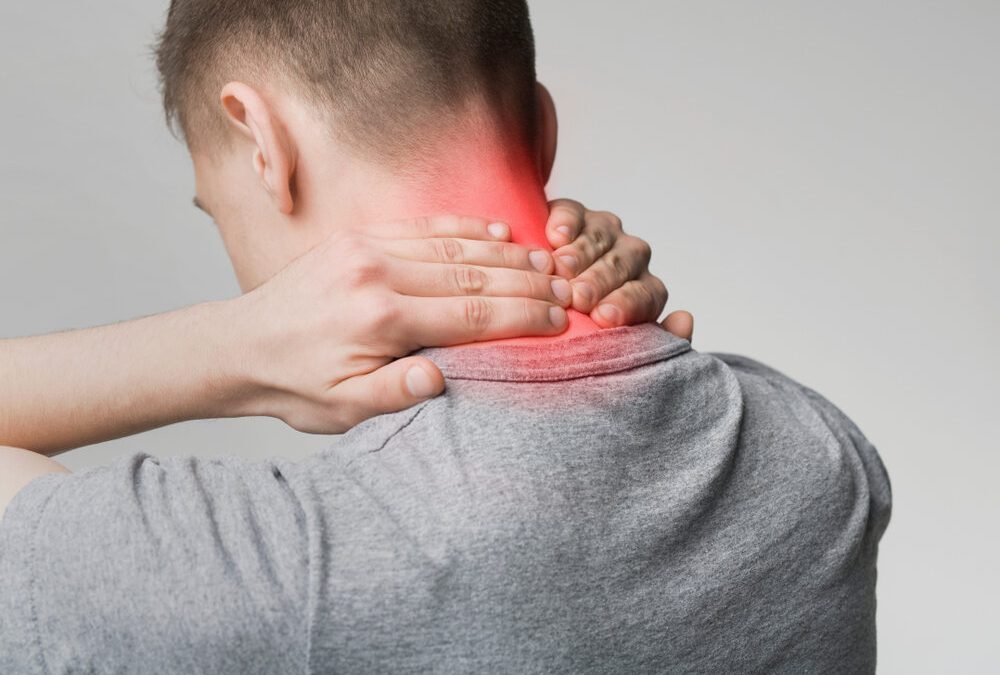Neck pain is very common and can vary widely in severity.
There are a number of causes of neck pain, as the American Association of Neurological Surgeons notes, and these can include:
- Muscle inflammation
- Strain
- Trauma
- Arthritis
- Disc degeneration
- Narrowing of the spinal canal
- In very rare cases, neck pain could be a sign of cancer or meningitis
If you find yourself suffering from neck pain, it’s very likely that you have nothing to worry about. As the AANS emphasizes, “Most causes of neck pain are not life threatening and resolve with time and conservative medical treatment.”
Here are 7 causes of pain in your neck that are not usually reason for any concern.
1. Muscle Strain
If you’ve been physically active recently and your neck is bothering you, then the chances are high that you’ve strained your neck. In most cases, neck strains, which are essentially muscle or tendon tears, will resolve on their own in about a week, and the best course of action is to rest and avoid agitating your neck further.
2. Stress & Tension
There are many potential causes of neck pain and stiffness, but stress and tension are two of the most common.
As the American Psychological Association notes, “The long-term activation of the stress response system and the overexposure to cortisol and other stress hormones that come with it can disrupt almost all of your body’s processes. This can put you at increased risk for a variety of physical and mental health problems, including anxiety, depression, digestive issues, headaches, muscle tension…[and more]”.
Stress is also one of the most common non-concerning causes of neck pain with headache.
Luckily, there are plenty of medically proven ways to reduce stress, ranging from quick actions like checking in with yourself or playing your favorite song to daily practices like mindfulness meditation.
Massage is also a wonderful way to relieve stress-related tension and neck pain.
3. Poor Ergonomics
If you’re like many Americans, you sit at a desk for a good amount of time, craning your neck over documents or holding your phone between your shoulder and ear. Or maybe you just have a tendency to slouch. Either way, poor ergonomics can create non-concerning (but nevertheless annoying) neck pain.
4. Sleeping Habits
From sleeping on the couch to “sleeping in risky positions” — such as on your stomach, your sleep habits could be causing your neck pain. You should avoid sleeping on your stomach if possible, and if you sleep on your side check your pillow to ensure it’s supportive and you can’t easily slide your hand in the space between your head and shoulders.
5. Technology Use & Screen Time
There’s a lot of debate as to whether technology causes us more harm than good or vice versa. Regardless of where you fall in that debate, the fact remains: Americans spend a lot of their time looking at screens. And, while the associated impacts on mental health are often talked about, screen time can also have adverse physical effects — like neck pain.
The solution? We love a good tv-streaming session as much as you probably do, but if this habit is causing you pain, you may wish to reduce screen time – or, alternately, keep your television at eye level. The same goes for smartphone and tablet use — propping these devices on a pillow in your lap or using a dedicated stand can help.
6. Minor Injuries
Minor injuries can cause neck pain that usually goes away on its own after some time. If, however, you’ve recently suffered from a major injury (like whiplash as the result of a car crash), you should seek medical attention.
7. Inadequate Neck Support
Having inadequate neck support – whether that’s while sitting on an airplane, sleeping in your bed, or decompressing on the couch or your favorite armchair — can result in neck pain that, as with many other types of neck pain in this list, usually resolves on its own with time and rest.
Get Relief From Neck Pain Starting Now
Suffering from neck pain that isn’t associated with any of the above causes, such as nerve pain? It could be related to another underlying health condition. Contact Desert Spine and Scoliosis Center now for a diagnosis.



Recent Comments